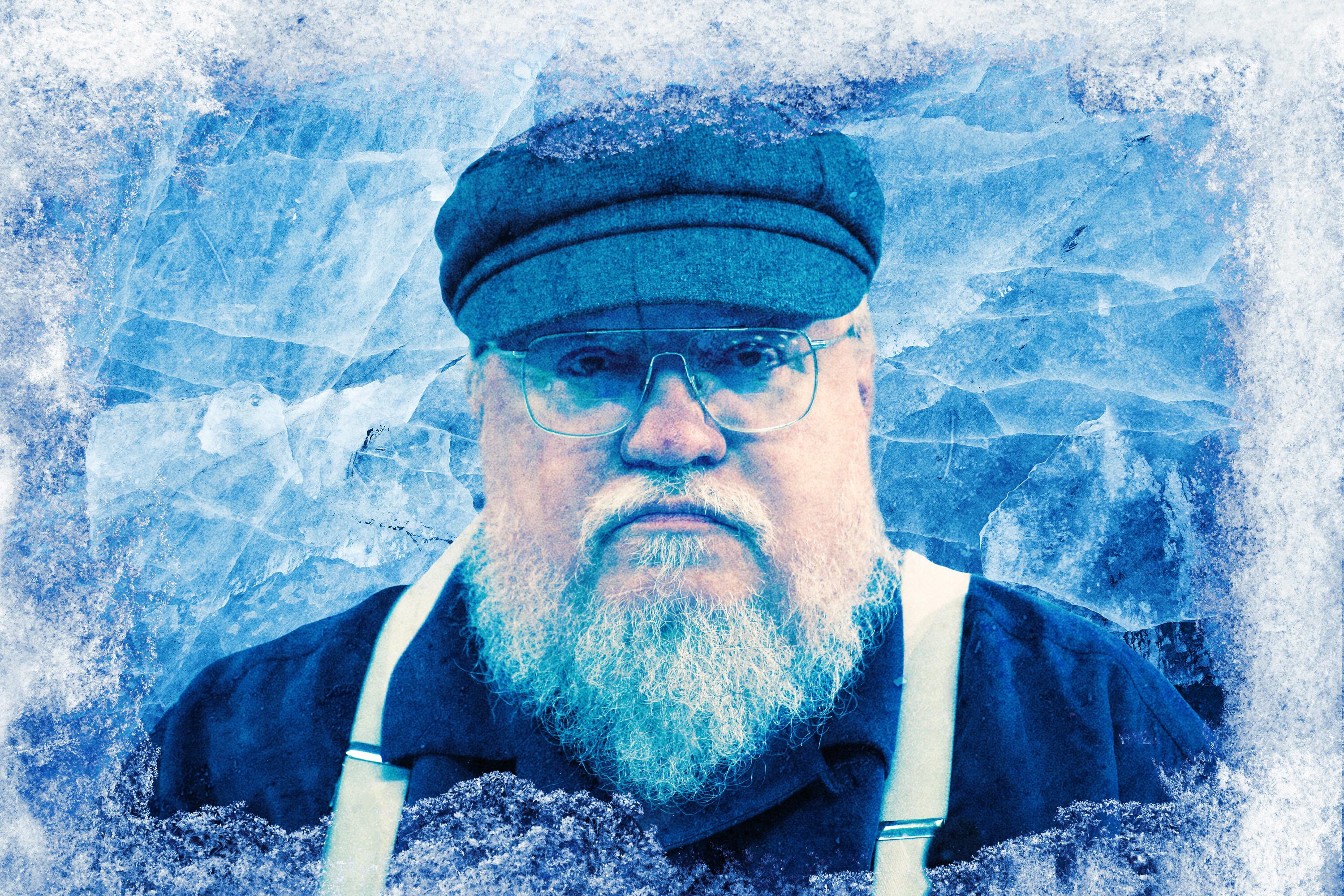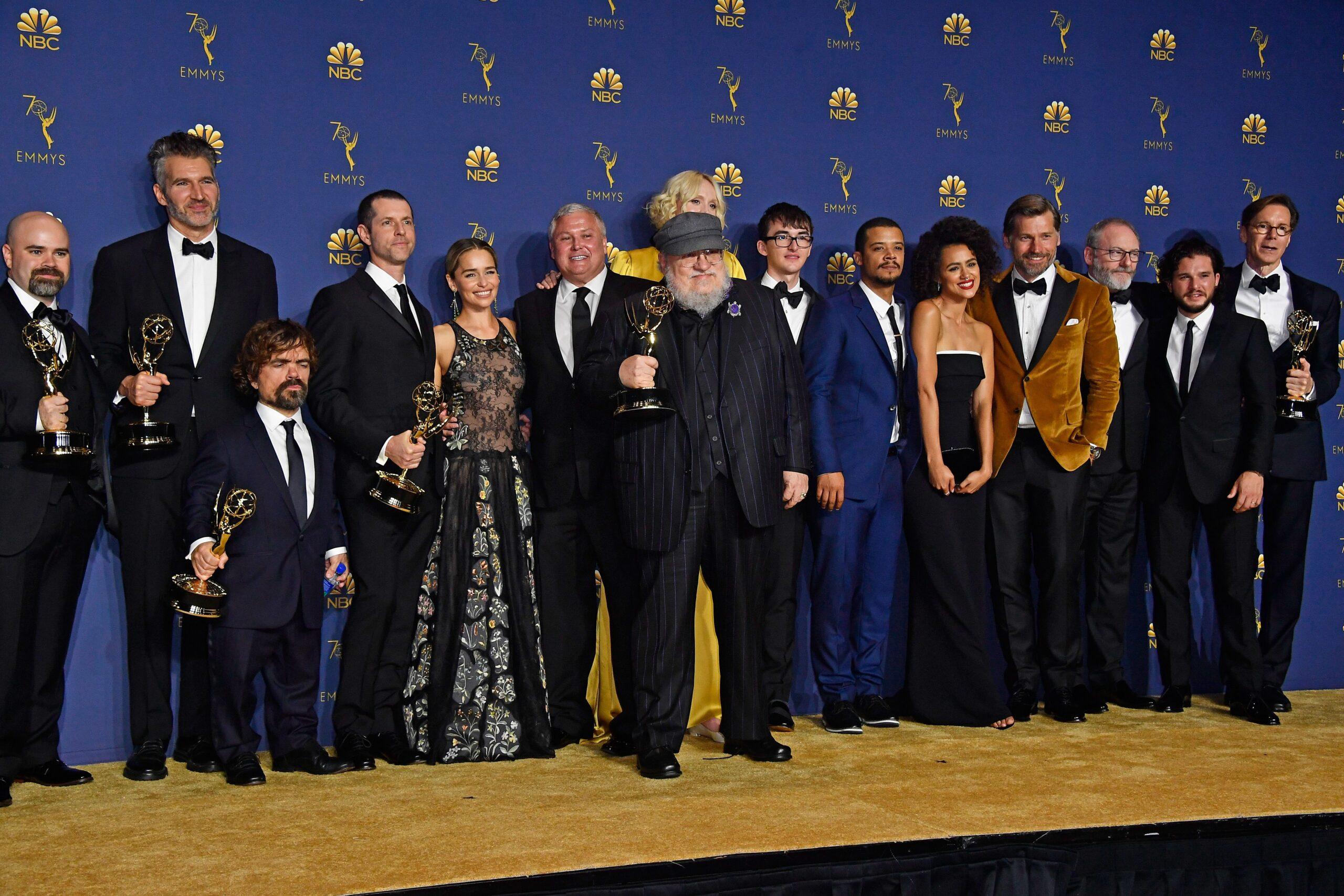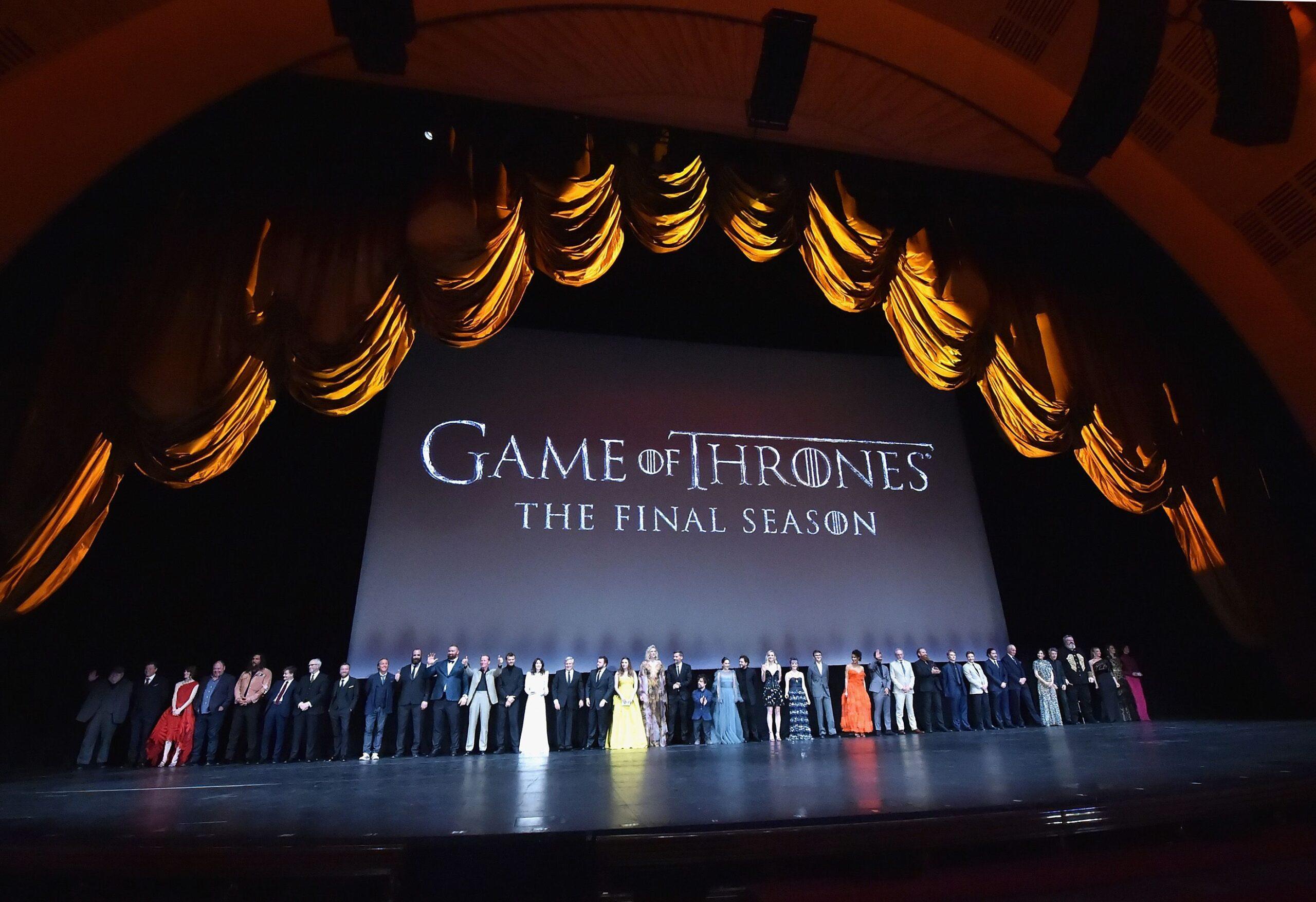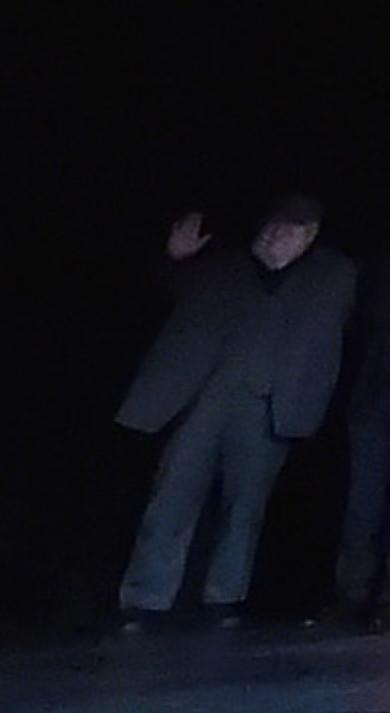Cheer Up, Georgie
The author of the books that inspired ‘Game of Thrones’ has sounded a bit bummed out lately. But as the TV world prepares to bid adieu to the world he created, we’re here to remind him that he has a lot to be happy about.
Dear George,
We’re worried about you.
Game of Thrones has never been bigger, but lately you’ve stopped sounding like your usual, jovial self. Your recent interview with The Hollywood Reporter took place at a celebratory event—the world premiere of Thrones Season 8—yet your words were tinged with sadness. “I think I’m going to be hanging around Westeros while everyone else has left,” you said. You also made working on The Winds of Winter sound like staying with Annie Wilkes. “I’ve been in isolation,” you said. “My loyal staff—I have a couple of them with me—have chained me to the typewriter. They’re making me eat healthy food. It’s horrible!” Almost five years after giving fans the finger for focusing on your mortality, you raised the subject yourself, confessing, “I wish I was 30 years old instead of 70.”
Yes, the transcriber inserted two parenthetical laughs. But an innocuous-looking “(Laughs.)” can conflate or mask so many emotions. Were you expressing merriment, desperation, or resignation? Were those laughs hearty guffaws, or merely mirthless snorts?
Based on your interview with The Guardian late last year, the latter seems more likely. “Every time I sit down I’m very conscious I have to do something great, and trying to do something great is a considerable weight to bear,” you said, admitting that Winds has proved “very, very challenging” and explaining that you sometimes struggle to enter the trance state your writing requires. In another interview the same month, you added, “I’ve had dark nights of the soul where I’ve pounded my head against the keyboard and said, ‘God, will I ever finish this?’ The show is going further and further forward and I’m falling further and further behind. What the hell is happening here?” When you announced the 20th-anniversary edition of A Clash of Kings last December, you reminisced fondly about the three-year gap between A Game of Thrones and Clash, writing, “Sigh. Those were the days, when I was only two years late.” It’s been almost nine years since you wrote, “I am dancing, boys and girls, I’m dancing as fast as I can. But some days it does feel as if I am dancing in circles.”
That was when Winds was in its early stages. Several overoptimistic publication predictions later, you’ve stopped offering estimates of when the sixth installment of A Song of Ice and Fire might appear (beyond “It’ll be done when it’s done”), and you’ve taken to musing about other well-known works that were never completed. You also titled a recent blog post, “Kill Me Now.” Granted, that one was about the Odell Beckham Jr. trade, but it fit the morbid mood that persisted into this week, when you observed National Pet Day by mourning a departed companion who’s gone the way of Ser Pounce.
In perhaps the most melancholy-inducing development, you’ve abandoned your quest to call the first Game of Thrones prequel The Long Night, even though that was your preferred title for the as-yet-unnamed show. Evidently HBO wouldn’t defer to your wishes. That decision seems symbolic of the sidelining that’s occurred as the adaptation has grown beyond the books. As recently as September, you stood front and center when Thrones won the Emmy for Best Drama, the showrunners and actors arrayed behind you like lesser lights.

At the recent premiere in New York, though, you were as far from center stage as you could have been while still standing on it.

If you can’t quite make yourself out, you’re the colorless, barely lit blur on the left.

We know it can’t be easy to watch someone else complete the story you started and beat you to big revelations that you planned to pay off yourself. It must feel a little like a Rumpelstiltskin scenario; by adapting your series for the screen, HBO made you wealthy and well known, but now it’s come to claim your treasured artistic offspring. We wouldn’t blame you for contemplating baking Benioff pie after seeing David Benioff assert that “This is where the story ends” and utter casually cutting lines like, “I don’t think that final book is written in stone yet—it’s not written on paper yet.” Maybe the writing will go faster with the adaptation complete. (“It’s been going very well lately,” you divulged at the premiere.) Then again, feeling less like you’re racing the clock could be small consolation if instead you feel like you lost.
If we were with you, we would give you a hug. But in lieu of a hug, here’s a reminder of why you really have very little to feel glum about—and not just because you’re probably making more money than the Iron Bank of Braavos.
As you recently recounted, before beginning A Game of Thrones, you spent half a decade in Hollywood development hell, pitching concepts and scripting pilots that never turned into TV series. Things are different today. HBO has tinkered with premises for five Thrones spinoffs, while continuing to work on the long-running series itself. Hulu is planning on two shows set in your Wild Cards universe. Syfy produced a series based on your 1980s Nightflyers novella and short stories. (It was canceled in February, following its first season, but at least it made it to air.) In other words, within the past year, a total of nine series based on your work have been in some stage of development, with at least a third of them either in existence or about to be. Robert Kirkman wishes his work were this much in demand.
Some of your other ideas from decades ago that didn’t break through then may get new leases on life in print, following in the footsteps of Starport, a recently released graphic novel. That touches on another oft-overlooked accomplishment: Even though A Song of Ice and Fire is still stalled at five finished books, it’s not like you haven’t been busy. By most writers’ standards, you’ve been extraordinarily productive, albeit not always in the way that most of your fans preferred. As of early 2017, you had published more than half a million non-ASOIAF words since completing A Dance With Dragons in April 2011. And that total doesn’t account for additional projects you’ve authored since, including last year’s 700-page-plus opus, Fire & Blood.
Factor in editing and all of the time sucks that stem directly or indirectly from the public profile that’s been bolstered by Thrones—creative contributions to TV adaptations, conventions and interviews, all of those trips to the Emmys—and it’s no surprise that Winds is way behind schedule. It also seems safe to assume that it’s taking so long partly because it’s intended to be a really big book. “My books are not books of ordinary length,” you pointed out to Entertainment Tonight last month. “Even A Game of Thrones, which is the smallest of them, is like four regular novels.” Given that exchange rate, your pace isn’t as slow as it seems.
More than all that, though, focus on this: Thrones has monopolized our interest in a way that few pieces of culture still can. Much of the world will be drawn to Westeros this weekend, and although those many millions of fans will be tuning in via video, not turning pages, their attention is attributable to you, big guy. We don’t love this series because Benioff and Weiss changed Jeyne Westerling to Talisa Stark. Thrones has thrived thanks to the settings, characters, and conflicts you crafted. The show’s popularity is proof of your power as a storyteller.
If the show continues to falter as it strays further from the books (which was often the case in Season 7), you’ll look better by comparison. If it finishes strong, much of the glory for orchestrating its entire epic arc will still redound to you. The books climbed to the top of best-seller lists long before HBO started sniffing around, so the small-screen series is a product of preexisting success. In the long run, it won’t much matter which version of the story wrapped up earlier; reading and watching will be two satisfying and largely complementary ways to experience the saga. Some people who watch the show will gravitate to the books, just as many of those who read the books will want to watch the show. In the long run, the books may hold up better; imagination doesn’t date itself as soon as CGI.
The timing of HBO’s big finish makes the loss of creative control you’ve encountered unusual; it’s atypical for an adaptation to outstrip its source material while the original series is still in progress. In another sense, though, this is par for the course. Every massively successful storyteller eventually cedes some control of the canvas that once existed only in their mind. Once the work is out there, others are free to interpret it in any way they wish (or write fan fiction about it, much to your dismay).
In many ways, you have it much better than most authors of celebrated series, even aside from the fame and fortune. Unlike Frank Herbert or Robert Jordan, you still have a chance to tie up the series yourself; even if you never finish A Dream of Spring, you’ll still have lived long enough to see the story end in one form, largely following the path you plotted. Unlike Stephen King, you haven’t seen your magnum opus mangled in movie form after interminable delays. Unlike George Lucas, you haven’t tarnished your own series’ legacy and then signed away the right to take part in restoring it. Unlike J.R.R. Tolkien, you got to play a prominent role in shaping what your world would look like on screen. You’re the rare creator who wrote something beloved and then entrusted it to a team that took the time and care to record a cover version that’s just as revered.
You’ve constructed a sandbox that’s too fun for other people not to play in. Perhaps you’ve had to share it sooner than you would have liked, but there are still benefits to being the progenitor of the stallion that mounted the TV world. Even the people who yell at you for not finishing Winds faster are, in their own immensely unwelcome way, telling you that your work is important to them. If they didn’t love your books, they wouldn’t want more of them.
When you spoke about the ending of A Song of Ice and Fire in 2016, you said, “I suspect the overall flavor is going to be as much bittersweet as it is happy.” It’s probably bittersweet for you that Thrones reached its grand finale first. But no matter how these last six episodes unfold, your words won’t be wind.
An earlier version of this story misnamed the author who began the Dune series. It was Frank Herbert, not Brian.
Disclosure: HBO is an initial investor in The Ringer.

